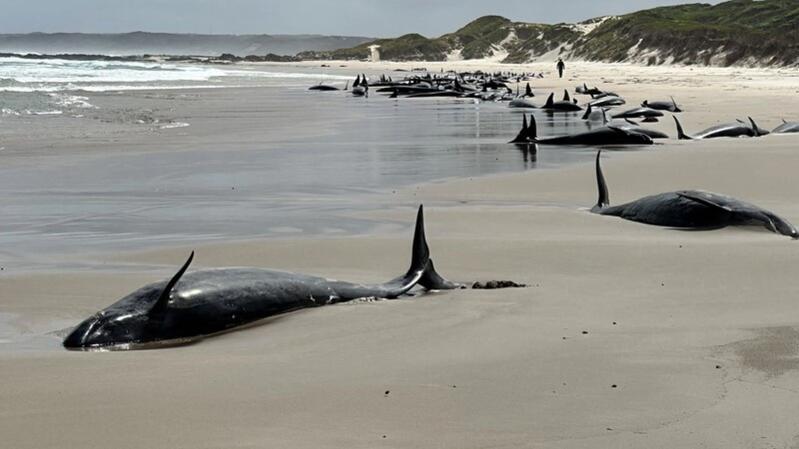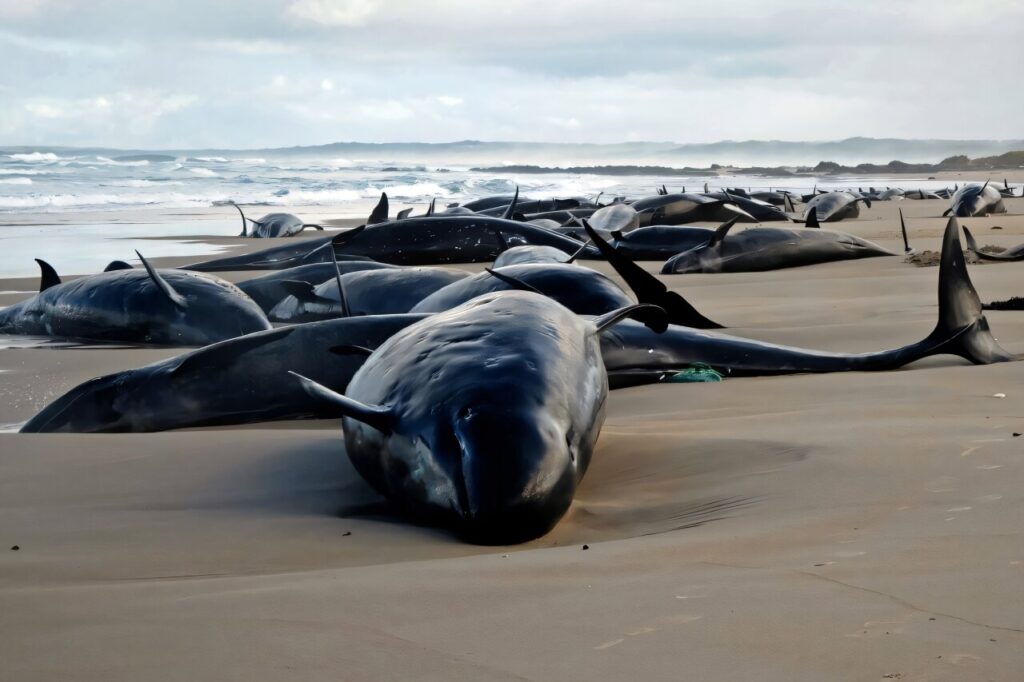A heartbreaking scene is unfolding on a remote Australian beach, where a pod of 157 dolphins has become stranded.
Despite efforts to refloat them, only 90 have survived, and wildlife rangers have made the difficult decision to euthanize the remaining animals.
The Stranding: What Happened?
The dolphins, identified as false killer whales, were found stranded on a beach near the Arthur River inlet on the west coast of Tasmania.
The area is known for its windswept coastline and is a sparsely populated region.

According to biologist Kris Carlyon, the location is “extremely remote” and “difficult to get access to,” making rescue efforts even more challenging.
Why Euthanasia?
Following expert veterinary assessment, incident controller Shelley Graham announced that euthanasia was the most humane option for the stranded dolphins.
With the animals becoming increasingly stressed due to exposure to the sun and wind, the decision was made to prevent further suffering.
Carlyon explained that “euthanasia of an animal this size, it’s not a simple exercise,” highlighting the complexity of the situation.
The Challenges of Refloating
Efforts to refloat the dolphins, which can weigh over one ton, had fallen short. Carlyon stated that “we’ve given it a good crack this morning, but we are running out of options for a successful refloat.”
The shallow tide and remote location made it difficult to rescue the animals, and the team was facing a race against time to save them.
Mass Strandings: A Common Phenomenon?
While it’s not uncommon for pods of false killer whales to strand themselves on Australia’s beaches, this particular incident is the first of its kind in 50 years in this part of Tasmania.
According to Carlyon, “often we don’t get to the bottom of the ultimate cause” of mass strandings, but it’s believed that strong social bonds between the animals can contribute to these events.
“One disoriented individual can drag the rest of them ashore,” he explained.
The Mystery of Mass Strandings
Marine scientist Vanessa Pirotta noted that “the moment a whale or dolphin strands, the clock of survival starts ticking.”
Despite efforts to understand why whales and dolphins strand, the exact causes remain unknown.
Pirotta suggested that Tasmania’s geographical location may make it difficult for these animals to navigate, contributing to the high incidence of mass strandings in the area.
About False Killer Whales
False killer whales are a highly social species that can grow up to six meters (20 feet) in length and weigh over one ton.
They are known to gather in pods of 50 or more and are often involved in mass strandings that can have devastating consequences.
According to the Australian Museum, these events can “wipe out whole schools involving hundreds of animals.”

